Southern Asia
Trans mayor for a small city elected in majority-Muslim Bangladesh
Ritu is the first mayor in Bangladesh who is “third gender”, the official designation for transgender people in the Muslim-majority country
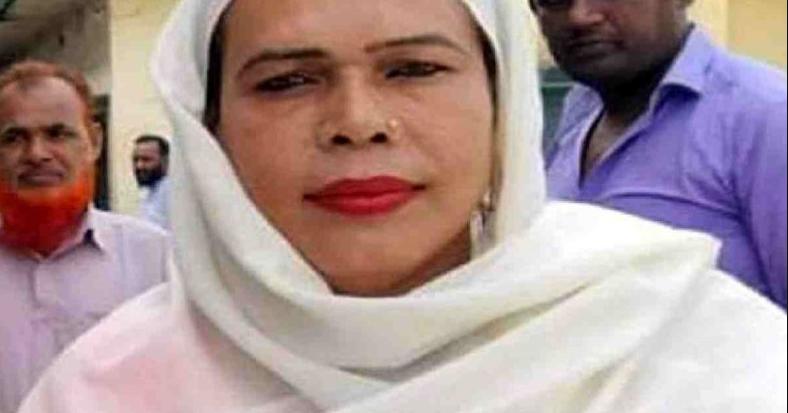
TRILOCHANPUR, Kaliganj upazila, Jhenaidah, Bangladesh – A 45-year-old Transgender independent candidate beat a political rival late last month becoming the first elected first Trans mayor in this majority-Muslim, South-Central Asian nation.
Nazrul Islam Ritu garnered 9,569 votes against the Awami League-backed candidate, Nazrul Islam Sana who received 4,517 votes. Speaking with a reporter from Al Jazeera, Ritu said her victory showed growing acceptance of the “Hijra” community, an umbrella term for those born male but do not refer to themselves as either a man or woman.
“The victory means they really love me and they have embraced me as their own,” she added. “I will dedicate my life to public service.”
This nation of around 164.7 million people has a Trans population estimated to be approximately 1.5 million or less, a significant majority who are forced to live by begging or working in the sex trade, often faced daily with threats of violence and anti-Trans discrimination.
Transgender men are often times more at risk than their female counterparts.
In October 2017 Human Rights Watch interviewed six transgender men living in different parts of Bangladesh. All of them spoke of bullying at school, barriers to employment, difficulty accessing health care, as well as harassment and verbal abuse in both public and private spaces.
On top of these difficulties, they feared for their safety amid a climate of impunity for attacks on minorities by religious extremists and feared that, if they were targeted, authorities would deny that they were targeted because of their gender identity rather than come forcefully to their defense.
Interviewees also highlighted the difficulties that arise because their gender identity does not match the gender listed on diplomas, passports, or other legal documents, including their ability to get jobs and to travel.
There has been some progress as the country’s growing tolerance for the rights of sexual minorities has seen a raft of new laws under Prime Minister Sheikh Hasina.
In 2013, transgender people were officially identified as a separate gender and, in 2018, they were allowed to use “third gender” when registering to vote. In November of 2020, Bangladesh’s first religious school for transgender people opened.
According to the BBC, more than 150 students will study Islamic and vocational subjects free of charge at the privately-funded seminary, or ‘madrassa’, in the country’s capital city of Dhaka.
This past June, the country’s government declared a tax rebate for companies hiring transgender people to boost the government’s social inclusion efforts, Al Jazeera reported.
“I propose to enact special tax incentives with a view to providing employment and ensuring rise in living standards and social and economic integration of the members of the third gender,” Finance Minister AHM Mustafa Kamal announced as he unveiled the national budget for the 2021-22 financial year.
Speaking to reporters after her election, Mayor Ritu said that one of her main goals of is to “eradicate corruption and uproot the drug menace” in her town of 40,000 people.
Southern Asia
Maldives activists say new president won’t bring LGBTQ+ rights to country
Island nation is a popular tourist destination
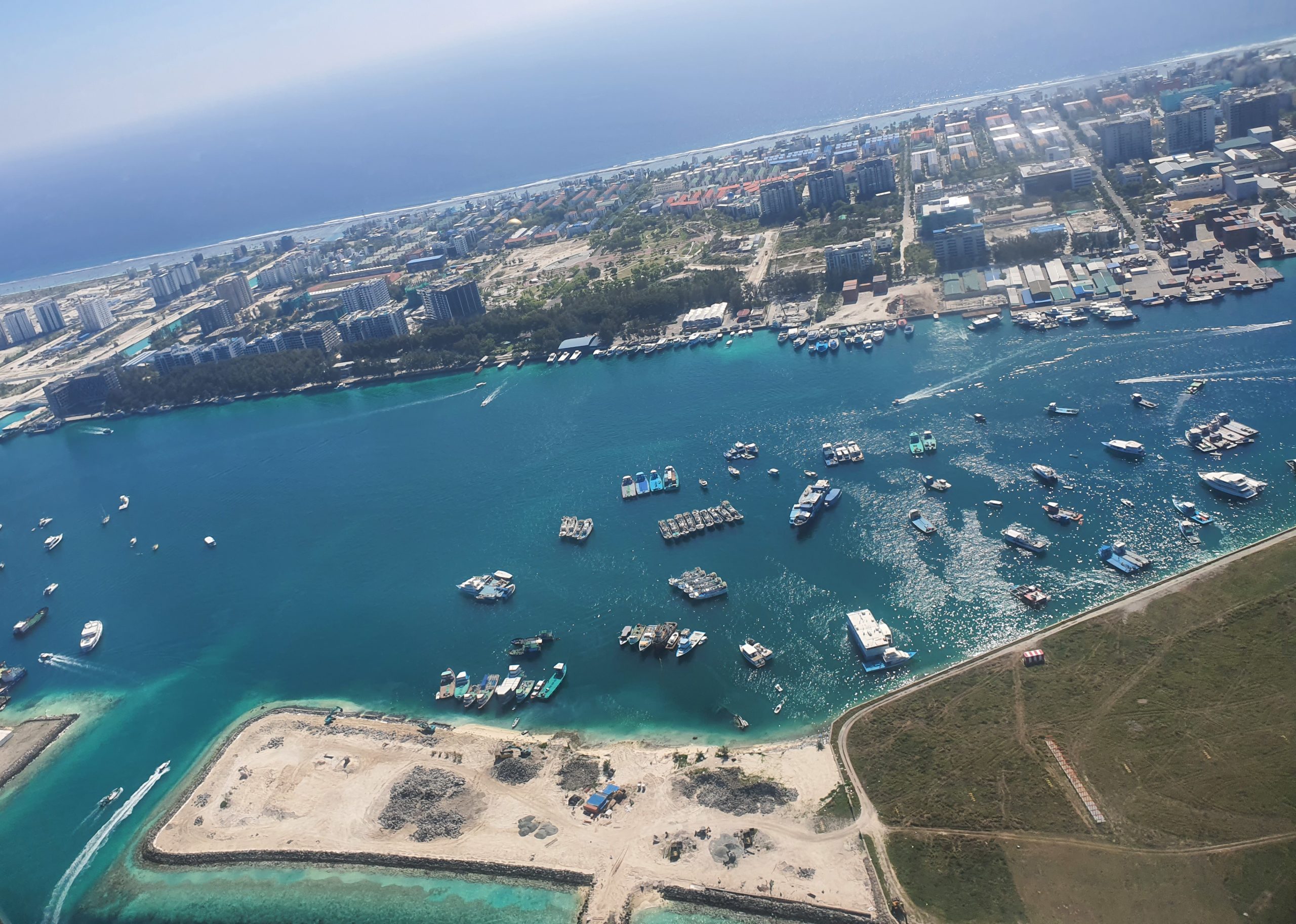
MALE, Maldives — Maldives, a Southeast Asian country that is a popular tourist destination, on Sept. 30 elected a new president.
Doctor Mohamed Muizzu, leader of the Progressive Party of Maldives and the president-elect, secured 54 percent of the total votes. He defeated incumbent President Ibrahim Mohamed Solih of the Maldivian Democratic Party.
Maldives does not offer any rights to the LGBTQ+ community.
Consensual same-sex sexual activities are prohibited in the country under the Penal Code 2014. Same-sex couples can face up to eight years in prison and 100 lashes (for both men and women.) The penal code works under the Islamic laws that criminalize same-sex relationships in the country.
Solih in 2019 started to work on human rights concerns and LGBTQ+ issues in the country, but the previous government abandoned the work after Islamic extremists pressured them. Solih did nothing to prevent extremist groups from attacking the country’s democratic institutions.
“I believe for ordinary liberals it would be safer with the new government because when the Progressive Party of Maldives ruled before, they did not get personal with activists who were not connected to the opposition. They were busy fighting with each other,” said Ulfa M. Fahmee, a humanist creator and LGBTQ+ rights activist. “Now the ruling party wants international rights groups to see they value democratic values, so they don’t openly arrest opposition activists, instead they attacked those viewed as promoting liberal values.”
“(The) new president is already focused on bringing economic equality unlike previous government who sent islanders to pray for rain when the poor ran out of stored rainwater in the islands making Maldivians believe they have to sacrifice LGBTQ and irreligious for God to get necessities instead of asking from government,” added Fahmee.
Fahmee was forced to flee Maldives because of safety concerns after state-sponsored news outlets accused her of blasphemy.
She said the Maldivian Democratic Party ran a hate campaign against her while the opposition party was protesting against government officials who were caught doing a blasphemous report.
Fahmee told the Washington Blade that Maldivian media is not allowed to post pictures until a conviction is secured, but the press published her pictures while she was still under investigation, putting her in danger of being harmed by extremists. With pain and anger in her words, Fahmee told the Blade that local police still have not returned any of her and her family’s confiscated electronics.
Fahmee is currently living in exile.
“We don’t have an openly LGBTQ community in Maldives, but the current govt enjoyed inciting hate and violence against ordinary liberals who were seen as part of LGBTQ,” said Fahmee. “Whenever privileged elites were accused of any un-Islamic activity, (the) MDP government did hate campaigns against ordinary liberals and jailed many people while at the same time sending human rights fraud reports to international rights organizations blaming Islamists for the hate spreading. Islamists are usually after the government officials so govt tries to divert hate targeted at them by encouraging more state sponsored hate against liberals.”
LGBTQ+ activists have faced several challenges in the Maldives, including disappearances and death.
Radical Islamic extremists in June 2012 killed blogger, LGBTQ+ activist and journalist Ismail Khilath Rasheed. Authorities did not investigate the murder.
According to a report published by The Edition, a local Maldivian media outlet, former President Mohamed Nasheed and his newly formed party will be part of the incoming government and will take oath on Nov. 17 with Muizzu.
“There is going to be no change as a consequence of Dr. Mohamed Muizzu being president,” said Shakyl Ahmed, an LGBTQ+ activist. “Some say that it will get worse because ‘salaf’ (a group of sheikhs) is on the new president’s side, but the new president definitely won’t make things better for us.”
Ahmed told the Blade he is not hopeful about the new government. He said that the new president doesn’t change the lives of the LGBTQ+ community in the country.
“Most LGBT people in Maldives are Muslim, so most of them don’t support gay rights in Maldives, even if they are gay,” said Ahmed. “However, they do engage in sexual acts with the same sex in secret. There are a few of us who support gay rights and we are trying to progressively change people’s minds.”
Kit Died, another LGBTQ+ activist told the Blade the president-elect will make the situation worse for the LGBTQ+ community in Maldives. Died added he is known to have connections with extremist factions.
“We have no support from the government at all — our existence itself is a crime — so all crimes against queer folk in this country get ignored,” said Kit. “Queer people get blackmailed, robbed, and sexually assaulted regularly here with no investigation or police report.”
“The Anti-LGBTQIA+ narrative in Maldives is upheld by the constitution,” added Kit. “The Maldives constitution is one of the few places in the world that mandates all its citizens to be Sunni Muslims. This creates a paradox for citizens who were born into the religion and want to leave or happen to be queer. There’s no space for queerness in the Maldives’ specific variety of Islam, which is stricter than most in practice thanks to the tiny population that is concentrated in very small cities.”
Ankush Kumar is a reporter who has covered many stories for Washington and Los Angeles Blades from Iran, India and Singapore. He recently reported for the Daily Beast. He can be reached at [email protected]. He is on Twitter at @mohitkopinion.
Southern Asia
Trans Pakistanis face uncertain future
Khyber province clerics ban Transgender people from dancing at weddings

PESHAWAR, Pakistan — The Transgender community’s history on the Indian subcontinent spans thousands of years.
The community has historically thrived, but discriminatory colonial laws left it isolated and Trans people faced violence in the subcontinent. Pakistan is no exception.
A group of 26 tribal clerics in Pakistan’s Khyber province on July 7 banned Trans people from dancing and playing music during weddings. They ruled clergy would not perform wedding rituals at any marriages that included dance and music.
The clerics in their decree said they will not perform the last rites of an entire family if any one of them disobeys the decision.
The Washington Blade reached out to Prime Minister Shehbaz Sharif for comment, but his office did not respond.
“They have been doing it for a very long time. In 2015, there were so many cases when Trans persons have been killed because of being artists because they were performing, and gender as well. The violence in Khyber province is apparently higher as compared to other provinces. But now other provinces are also replicating,” said Jannat Ali, a Pakistani Trans activist and executive director of Track T, a Trans rights organization. “Transphobia is increasing in other parts of Pakistan. The government is playing very smartly and being neutral as the current government is a right-wing conservative, and elections are about to come.”
The National Assembly in 2018 passed the Transgender Persons (Protection of Rights) Act, which allows for a Trans person to be legally recognized. The law also prohibits any discrimination and harassment based on gender identity.
While talking with the Blade, Ali said Pakistan’s Trans community faces a dilemma because it feels as though the British colonial era has returned. She said things were moving in a good direction after 2018, but an anti-Trans campaign has begun.
“After Khyber, I think, Punjab (a province in Pakistan) will be the next target,” said Ali.
Violence and attacks on the Trans community have increased in Pakistan in recent years.
Marvia Malik, the country’s first Trans television anchor, in February was attacked outside her home in Lahore.
She gave a statement to the police and later received threatening calls and messages from unknown numbers. A group of people shot at Malik while she was returning home from a pharmacy at night. She survived.
The Council of Islamic Ideology, a constitutional body that advises the Pakistani government and Parliament on Islamic issues, last year said the Transgender Persons (Protection of Rights) Act 2018 is not in accordance with the Shariah law. The council further stated many of its provisions are not consistent with Islamic ideology, and warned against it.
“I believe that everyone deserves to be respected and treated equally, regardless of their gender identity. Unfortunately, some people feel the need to discriminate against others based on who they are. It’s important for society to stand up against discrimination and promote acceptance and understanding of diverse identities. Everyone has the right to live their life without fear of persecution or discrimination,” said Anusha Tahir Butt, chair of Transgender Empowerment Organization in Pakistan. “It’s possible that this ban could lead to increased violence or discrimination against Transgender individuals not only in Khyber province but also in other parts of Pakistan. People need to speak out against this kind of discrimination and work together to create a more accepting and inclusive society. Governments and institutions need to take a stand against discrimination and protect the rights of all individuals, regardless of their gender identity. Education and awareness-raising can also play a role in promoting acceptance and understanding of diverse identities.”
Butt also said it’s unfortunate that discrimination against Trans people continues to take place in Pakistan, despite the country’s nondiscrimination laws. While talking with the Blade, she suggested leaders and politicians need to speak out against such discrimination and work to create a more inclusive society. Butt also said silence on this issue can be seen as condoning discrimination and that is not acceptable.
“This is such an alarming situation for the Transgender community because the transgender community is already facing threats in society. In recent times, there was objection over the Trans bill (the Transgender Persons (Protection of Rights) Act 2018) — a bill, which was giving fundamental rights to the community. Now, such a threat to the Transgender community will only get worse, Khyber Pakhtunkhwa is the province where we receive news regarding violence in the community,” said Veengas Yasmeen, founder editor and a journalist of Rise News, a digital news organization in Pakistan.
“In the province, clerics are in the habit of issuing fatwas in 2021 and 2022 where they barred women from going to the market, women should be accompanied by a male companion,” added Yasmeen. “I believe that this is not limited to the Khyber Pakhtunkhwa against the Trans community, but it may lead to other provinces. If conservatives bar Transgender persons from joining events, then how can they survive because the government does not offer them sufficient jobs? Unfortunately, the Pakistan state is as silent as a grave over the issue, which is also strengthening mullahs. If someone is thinking that such a ban is only on the Transgender community, they should not forget that conservatives, one day, will move toward you and issue the fatwa against you. I wonder, in the 21st century, some people are afraid of music and dance, both are a form of peace and love. If you are removing peace and love from your society, you are creating a society without souls.”
Pakistan’s religious court in May struck down key parts of the Transgender Persons (Protection of Rights) Act 2018. The court had said many of its provisions are against Islamic ideology.
“This is indeed sad and distressing on so many levels. The reversal of the Transgender Persons (Protection of Rights) Act of 2018 has exposed Pakistan’s Transgender population, especially Transgender women, to increased violence and discrimination,” said Rikki Nathanson, senior advisor for OutRight International’s Global Trans Program. “We recognize that cultures and societies have varying beliefs and practices. In this case, the ban imposed by the clerics reflects their interpretation of religious or cultural norms. It is distressing to learn about the growing violence experienced by Transgender individuals in Pakistan, particularly after the recent repeal of the Transgender Persons (Protection of Rights) Act of 2018.”
“Our partners in Pakistan have informed us about the heightened vulnerability this community faces in other areas, as these attacks have transitioned from virtual to physical acts of violence, some even resulting in fatalities,” she added. “The severity of these threats has escalated to such an extent that several notable Transgender activists have been forced to leave Pakistan and seek asylum elsewhere.”
Nathanson added this trend “is concerning and deserves attention.”
“These issues must be addressed to stop the cycle of marginalization that is affecting not only the mental health but overall well-being and safety of the Transgender community of Pakistan,” she said.
Ankush Kumar is a freelance reporter who has covered many stories for Washington and Los Angeles Blades from Iran, India and Singapore. He recently reported for the Daily Beast. He can be reached at mohitk@opiniondaily.news. He is on Twitter at @mohitkopinion.
Southern Asia
Nepal legalizes same-sex marriage, as prospects advance globally
The Himalayan country of 30 million people has become the 36th country with to legalize same- sex marriage
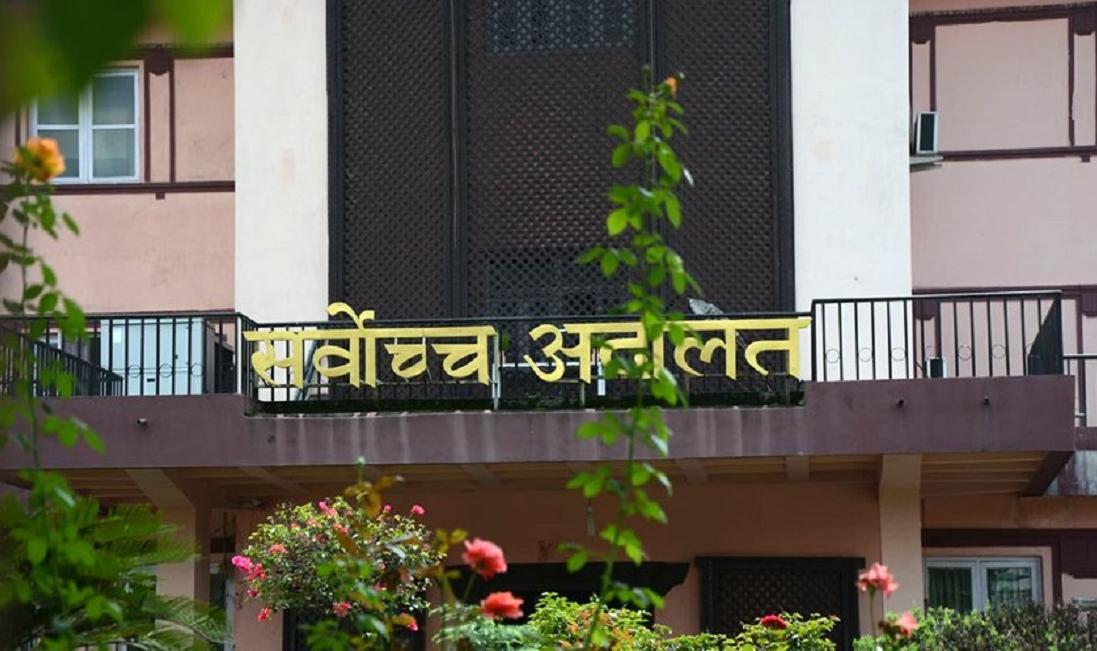
By Rob Salerno | KATHMANDU, Nepal – The Supreme Court of Nepal ordered the government to begin registering same-sex marriages on Wednesday, June 28, making the Himalayan nation of 30 million people the second country in Asia where same-sex marriage is legal.
The order is the culmination of a fifteen-year-long battle for equal marriage that began shortly after the country’s transition to democracy in 2007. That year, laws criminalizing sodomy were repealed, and the Supreme Court ordered the new government to change all laws that discriminate against LGBTI people.
Nevertheless, while the new government passed a new constitution in 2015 that explicitly forbade discrimination against gender and sexual minorities, it never passed laws to allow same-sex marriage.
The courts in recent years have gradually opened up rights for same-sex couples since then, and in March, the Supreme Court ordered the government to pass legislation for same-sex marriage.
With the government not moving to pass same-sex marriage legislation, seven individuals, including a representative of the country’s main LGBTI advocacy group, the Blue Diamond Society, filed a suit seeking an order to allow same-sex marriage.
On Wednesday, the Supreme Court granted the order, instructing the government that it must register same-sex marriages immediately and until it passes legislation to recognize same-sex marriage.
“This order today from the Supreme Court is just and right because the Parliament can’t take forever to ensures citizens’ rights, equality and non-discrimination,” the Blue Diamond Society said in a press release announcing the decision.
“This is very significant development as same-sex as well as third-genders and their partners can register their marriages. They will be entitled rights equal as heterosexual married couples. Parliament may take a while to pass the marriage equality law, but this order gives a very practical solution to members of sexual and gender minority communities who wish to register their marriage legally,” the press release said.
Marriage equality prospects also on the rise in Czechia and Thailand
Nepal isn’t the only country where same-sex marriage is advancing.
On Thursday, June 29, the Czech Parliament’s Chamber of Deputies narrowly voted to advance an equal marriage bill to second reading. The bill will undergo a 120-day hearing process in committee before returning to the Chamber for a final vote in the fall. The vote was 68-58, but the final vote will likely be decided by the 74 deputies who did not vote on the bill Thursday.
The deputies also voted to advance a bill that would amend the constitution to ban same-sex marriage, and that bill is now also before committees. Although it earned more support in the Chamber on Thursday, it may struggle to reach the three-fifths supermajority required to become part of the constitution.
Thailand may be the next country in Asia to legalize same-sex marriage if Pita Limjaroenrat, whose Move Forward coalition won the largest number of seats in last month’s parliamentary election, can win the support of enough of the military-appointed Senators to secure his selection as Prime Minister when Parliament opens July 3. Limjaroenrat’s eight-party coalition has vowed to pass an equal marriage bill if it forms the government, as part of a suite of reforms for the Southeast Asian country.
India’s Supreme Court is also expected to rule in the coming months on several cases seeking the right to same-sex marriage that it heard in May.
And in the United States, a Navajo Nation legislator has introduced a bill to legalize same-sex marriage in the largest tribal jurisdiction in the country. Same-sex marriage has been explicitly illegal in the Navajo Nation since 2005. Bills to repeal the ban failed to pass at the Tribal Council last year, but legislators are hopeful that growing tolerance of LGBT people will improve the bill’s chances this year.
********************************************************************************
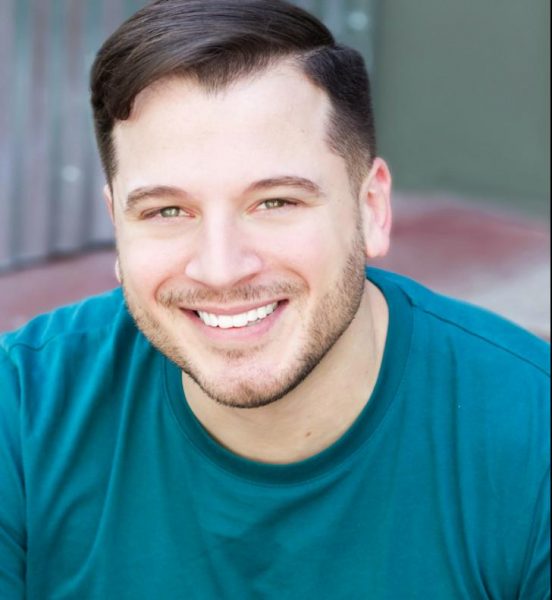
Rob Salerno is a writer, journalist and actor based in Los Angeles, California, and Toronto, Canada.
Southern Asia
Sri Lanka government will not oppose discrimination bill
Ranil Wickremesinghe made comment during meeting with USAID administrator
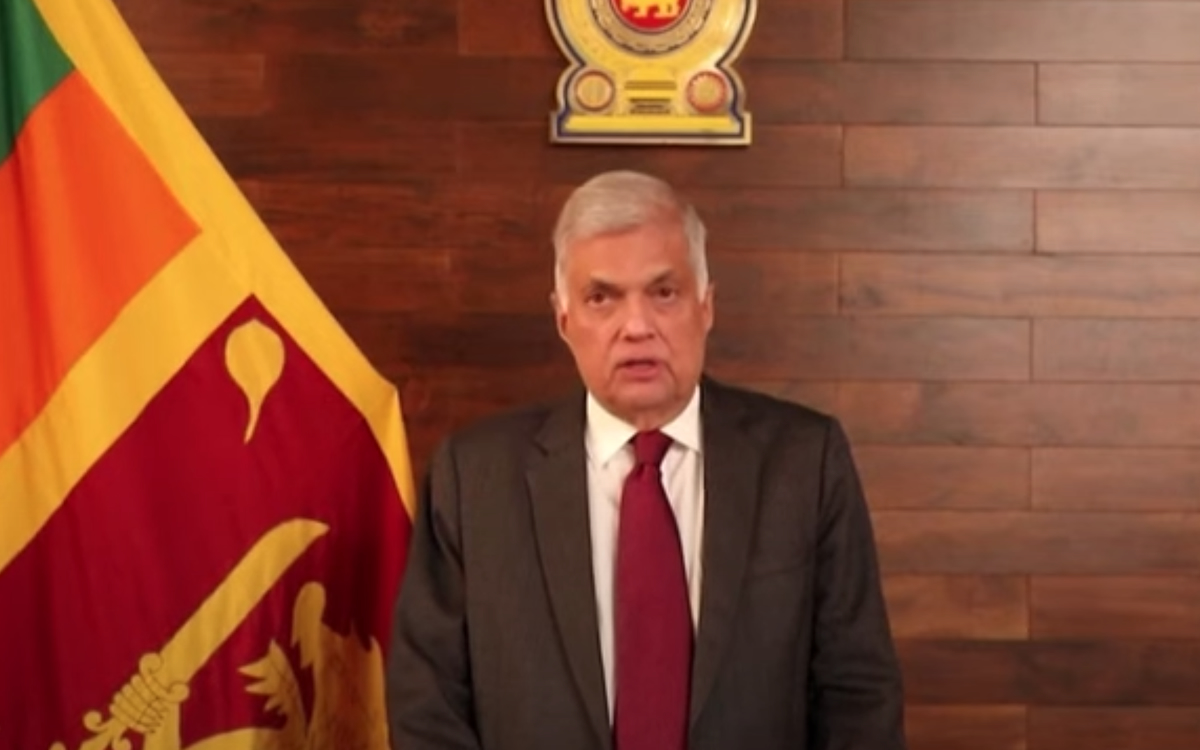
COLOMBO, Sri Lanka — The president of Sri Lanka on Sunday said his government will not oppose a bill that would decriminalize consensual same-sex sexual relations in the country.
The Colombo Gazette, a Sri Lankan newspaper, reported Ranil Wickremesinghe made the comment during a meeting with U.S. Agency for International Development Administrator Samantha Power.
Sri Lanka, a former British colony, is among the countries in which homosexuality remains criminalized.
The U.N. Committee on the Elimination of Discrimination Against Women in March ruled the criminalization of consensual same-sex sexual activity in Sri Lanka violated the rights of Rosanna Flamer-Caldera, executive director of Equal Ground, a Sri Lankan LGBTQ+ and intersex rights group.
Parliamentarian Premnath Dolawatte last month introduced a bill that would amend Sri Lanka’s Penal Code to decriminalize homosexuality. The Colombo Gazette reported Wickremesinghe said “individual” MPs will have to decide whether to support the measure.
“We are for it, but you have to get the support of individual members,” he said. “It’s a matter of their private conscience.”
Flamer-Caldera on Monday told the Washington Blade that she is “optimistically cautious” after Wickremesinghe’s comments.
While the president and his government won’t oppose it still needs to be passed in Parliament,” said Flamer-Caldera. “Let’s see how it goes.”
Southern Asia
Bangladesh judge convicts six men of murdering activist, USAID employee
Xulhaz Mannan hacked to death in 2016
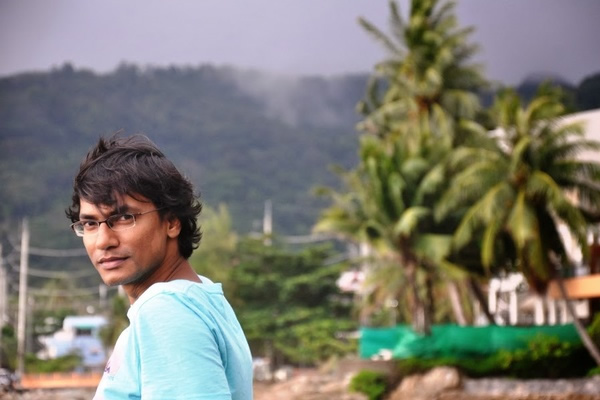
DHAKA, Bangladesh — A judge in Bangladesh on Tuesday found six men guilty of the murder of an LGBTQ activist and U.S. Agency for International Development employee.
The Daily Star, a Bangladeshi newspaper, reported Judge Md Majibur Rahman of the Anti-Terrorism Special Tribunal of Dhaka in the country’s capital sentenced the six men to death for the murder of Xulhaz Mannan and Mahbub Rabbi Tonoy, a fellow LGBTQ activist.
Mannan and Tonoy were hacked to death inside Mannan’s Dhaka apartment on April 25, 2016.
Mannan was the co-founder and publisher of Roopbaan, the country’s first LGBTQ magazine. Mannan also worked for the U.S. Embassy in Dhaka for eight years before joining USAID in September 2015.
Ansar al-Islam, the Bangladeshi branch of al-Qaida, claimed responsibility for the murders.
The Daily Star reported the six men who the judge convicted are members of Ansar al-Islam.
Two of the six convicted men remain at-large. The judge acquitted two other men who had been charged.
“On April 25, 2016, our hearts were broken when we learned of the brutal murder of our friend and colleague Xulhaz Mannan, a native of Bangladesh and beloved locally-employed member of USAID’s mission in Dhaka,” said USAID Administrator Samantha Power in a statement she released on Tuesday. “Xulhaz was a vibrant, selfless, and loving person, a fierce champion of human rights, and a courageous advocate for equality, pluralism, and inclusion for all people — including ethnic, religious, gender and sexual minorities.”
Power said Mannan “was targeted and killed for his activism and dedication.”
“He exemplified the best of Bangladesh — and USAID feels privileged that he was part of our team,” stressed Power. “Each year, USAID honors his legacy through the Xulhaz Mannan Inclusive Development Award, which recognizes a staff member who carries Xulhaz’s spirit of inclusion in our programs and policies.”
“Today, a Dhaka court handed down a guilty verdict to six perpetrators of Xulhaz’s murder,” added Power. “We at USAID remain committed to Xulhaz’s memory as we continue to advocate for the dignity and human rights of people around the world.”
-

 Commentary3 days ago
Commentary3 days agoThe Supreme Court’s ‘Don’t Read Gay’ ruling
-

 Arts & Entertainment2 days ago
Arts & Entertainment2 days ago2025 Emmy nominations: ‘Hacks’ and ‘The Last of Us’ bring queer excellence to the table
-

 a&e features3 days ago
a&e features3 days agoThe art of controlled chaos: Patrick Bristow brings the Puppets to life
-

 Movies2 days ago
Movies2 days ago‘Superman’ is here to to save us, despite MAGA backlash
-

 Sports2 days ago
Sports2 days agoHololive and Dodgers create a home for queer fandom
-

 News1 day ago
News1 day agoWest Hollywood to advance protections for diverse and non-nuclear families
-

 Events1 day ago
Events1 day agoLos Angeles Blade to take special part in NLGJA Los Angeles inaugural journalism awards






